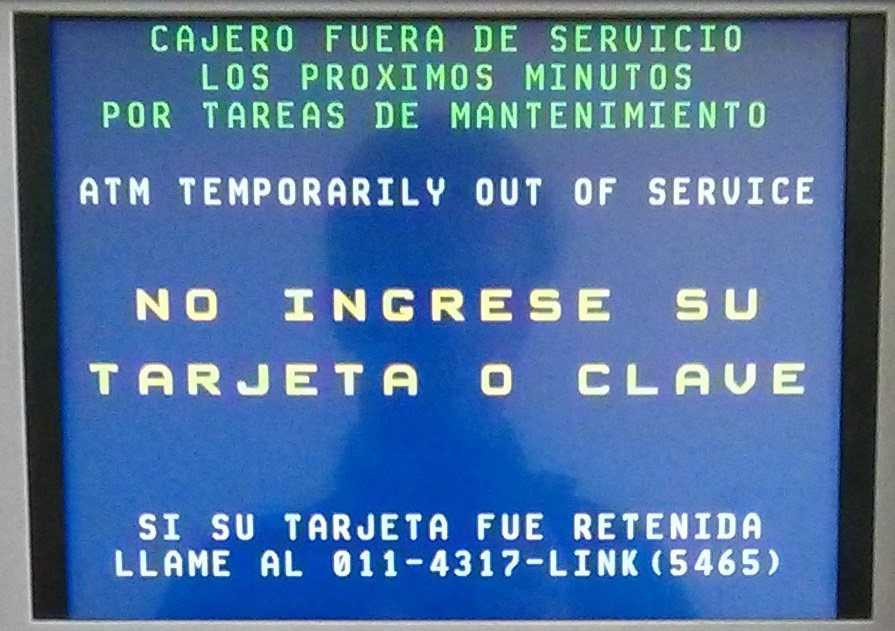I recently had a group of employees from one company who said their management was…

No Ingrese Su Tarjeta
The happiness of people doesn’t necessarily lead to improvement of their work.
After we landed in Buenos Aires we went through immigration, picked up our luggage from the baggage belt, flung everything through the giant security machines, and went straight to the two cash machines of the first bank we saw in the arrivals hall, to withdraw ourselves a pile of pesos. Unfortunately, the first machine we tried didn’t work, and the second one was broken. There were three machines from another bank around the corner, of which the first was out of order, the second had a personality problem, and the third thought it was a statue in loving memory of times gone by, when people were able to get cash.
It turned out that all cash machines at the airport in Argentina refused to give us any money. One would think a high priority in any country would be to ensure that tourists are able to transport foreign money into the country. But not in Argentina. The rich diversity of error messages and dysfunctional behaviors of cash machines Raoul and I encountered during our 10-day trip could turn any software maintenance person into a technical paleontologist. It turned us into gamblers, because the complete randomness of pay-outs made the cash machines seem more like slot machines.
We encountered a few more problems on our trip in Argentina. The first oficina de cambio (exchange office) we visited in the city center didn’t have any pesos. Figuring out where to buy a bus ticket in Bariloche took us 15 minutes of asking around various kiosks within a 100 meter radius around the bus stop. Returning a rental car usually takes us five minutes, but in Bariloche it took half an hour. Getting into an airport lounge anywhere in the world requires little more than offering a boarding pass to the receptionist; in Buenos Aires it took five minutes of browsing through a stack of papers, checking numbers, and filling out passenger data, by hand. And the priority queue for frequent flyers at check-in and boarding probably exist somewhere, but you’ll have to ask around. (Or just create your own, like we did.) This all doesn’t seem to bother the Argentinians that much, because the research says Argentinians are reasonably happy. And they love dancing.
Our experiences confirm the hypothesis that happiness of people doesn’t necessarily lead to improvement of their work. Some writers claim that organizations should focus more on the happiness and well-being of their workers, because happiness leads to higher productivity and better performance. This might be true, but there is evidence that a much stronger correlation exists the other way around. When organizations perform better this usually leads to more happiness and well-being of workers!
Raoul and I very much enjoyed the sun, chorizo steaks, ice creams, tango, wine, and the beautiful scenery in and around Buenos Aires and San Carlos de Bariloche. In terms of enjoyment we might rate our vacation as a 9 out of 10. It could have been a 10 out of 10 if the coffee house we found in San Martin de los Andes during the eight-hour road trip on our last day was accompanied by a coffee machine that actually worked.
Do you want to know the rest of this story? Subscribe to the Management Workout mailing list. The next workout article will only be available on the list!







